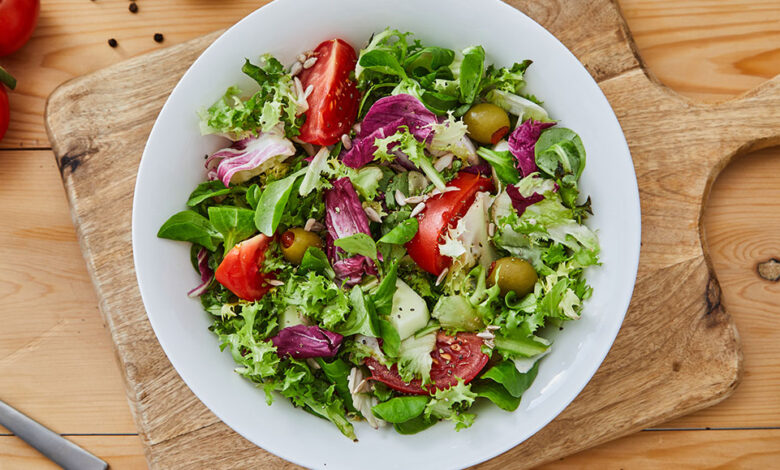‘Meaty’ nutrients might be able to be made in plants


amino acids: Simple molecules that occur naturally in plant and animal tissues and that are the basic building blocks of proteins.
B12: Also known as cobalamin, it’s a vitamin that plays a role in the proper function and development of blood cells and many types of tissues. These include the brain and nerves.
chemical reaction: A process that involves the rearrangement of the molecules or structure of a substance, as opposed to a change in physical form (as from a solid to a gas).
chemistry: The field of science that deals with the composition, structure and properties of substances and how they interact. Scientists use this knowledge to study unfamiliar substances, to reproduce large quantities of useful substances or to design and create new and useful substances.
creatine: A nitrogen-based compound made naturally by animals with backbones. It helps their bodies supply energy to cells, especially the making up muscle.
crop: (in agriculture) A type of plant grown intentionally grown and nurtured by farmers, such as corn, coffee or tomatoes. Or the term could apply to the part of the plant harvested and sold by farmers.
cysteine: This is an amino acid that plays a role in making many proteins and driving certain metabolic activities in living things. Cysteine is a part of beta-keratin, which is the main protein in your hair, skin and nails. In chemistry, cysteine can act as an anti-oxidant.
diet: (n.) The foods and liquids ingested by an animal to provide the nutrition it needs to grow and maintain health. Sometimes this is a specific food-intake plan.
engineer: A person who uses science and math to solve problems. As a verb, to engineer means to design a device, material or process that will solve some problem or unmet need.
environment: The sum of all of the things that exist around some organism or the process and the condition those things create. Environment may refer to the weather and ecosystem in which some animal lives, or, perhaps, the temperature and humidity (or even the placement of things in the vicinity of an item of interest).
enzymes: Molecules made by living things to speed up chemical reactions.
fatigue: The feeling of being tired, listless or short on energy.
fruit: A seed-containing reproductive organ in a plant.
gene: (adj. genetic) A segment of DNA that codes, or holds instructions, for a cell’s production of a protein. Offspring inherit genes from their parents. Genes influence how an organism looks and behaves.
genetic: Having to do with chromosomes, DNA and the genes contained within DNA. The field of science dealing with these biological instructions is known as genetics. People who work in this field are geneticists.
microbe: Short for microorganism. A living thing that is too small to see with the unaided eye, including bacteria, some fungi and many other organisms such as amoebas. Most consist of a single cell.
muscle: A type of tissue used to produce movement by contracting its cells, known as muscle fibers. Muscle is rich in protein, which is why predatory species seek prey containing lots of this tissue.
nutrient: A vitamin, mineral, fat, carbohydrate or protein that a plant, animal or other organism requires as part of its food in order to survive.
photosynthesis: (verb: photosynthesize) The process by which green plants and some other organisms use sunlight to produce foods from carbon dioxide and water.
protein: A compound made from one or more long chains of amino acids. Proteins are an essential part of all living organisms. They form the basis of living cells, muscle and tissues; they also do the work inside of cells. Antibodies, hemoglobin and enzymes are all examples of proteins. Medicines frequently work by latching onto proteins.
salt: A compound made by combining an acid with a base (in a reaction that also creates water).
tobacco: A plant cultivated for its leaves, which many people burn in cigars, cigarettes, and pipes.
vegan: One that eats no animal or dairy products. Such “strict vegetarians” also may avoid using goods made from animals, such as leather, wool or even silk.
vegetarian: A person who does not eat red meat (such as beef, bison or pork), poultry (such as chicken or turkey) or fish. Some vegetarians will drink milk and eat cheese or eggs. Some will eat the flesh of fish only, not mammals or birds. Vegetarians get the vast majority of each day’s calories from plant-based foods.
vitamin: Any of a group of chemicals that are essential for normal growth and nutrition and are required in small quantities in the diet because either they cannot be made by the body or the body cannot easily make them in sufficient amounts to support health.



